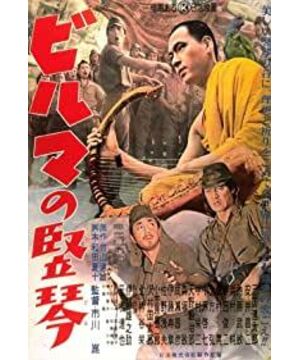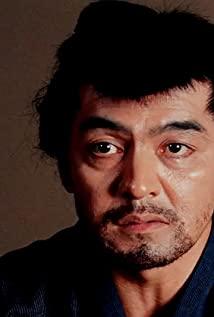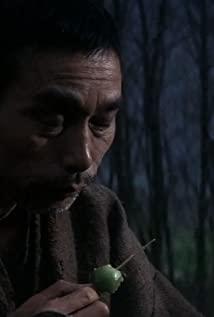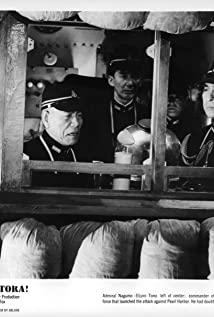Burmese harp
Zhao Song Towards
the end of World War II, the Allied counterattack in Southeast Asia caused the Japanese army to collapse across the board, and a small group of Japanese soldiers retreated into Burma. The entire process of defeat and escape was carried out in an orderly state. There was no sign of panic. In order to boost morale, the captain from the conservatory led everyone to sing. Moreover, in this team, there is another one. The soldier Mizushima, who is very talented in music, can use the Burmese harp to play wonderful music at home and abroad. Of course, in the hands of this simple and smart Mizushima, the function of the harp is more than that, it can also be used to send signals when exploring the road. Until they successfully entered the Burmese village, this war-themed film did not reveal anything similar to war. There was no cruelty, fear and bloody breath, nor the pain and confusion of the defeated in the usual sense. , And this group of Japanese soldiers did not have the performance of the so-called Bushido spirit in our usual impression. On the contrary, they looked more like a group of healthy and optimistic ordinary Japanese farmers, hoping to survive and return home aimlessly in Myanmar. Difficulties in the jungle. When they were in harmony with the locals in that village, the British army surrounded them. This time, the effect of the music was incredibly extreme-in the familiar British folk song, the opponents did not exchange fire. Instead, they sang together, and finally people put down their weapons... It turned out that the war was over three days ago. Here, the surrenders had no depression or pain, and the victors had no cheers. Everyone came together peacefully. Share the rare peace and relaxation after the war.
When you see this, although the simple and interesting scenes are very effective in maintaining the viewer's desire to continue watching, they still make people feel suspicious. What exactly is it going to talk about? Just go on like this? And at this time, the turning point began: the British army surrounded another small group of Japanese troops, and Mizushima was ordered to persuade him to surrender, but within the thirty minutes given by the British army commander, he did everything but failed to achieve his goal. The British army launched an attack, and the Japanese army, who had inherited the spirit of Bushido, was killed in battle. Mizushima, who was unable to leave in time, was also seriously injured. Fortunately, a monk saved his life. After recovering, Mizushima stole the monk's clothes, shaved off his hair, and pretended to be a monk and walked towards Mudong, where he wanted to meet his fellow prisoners of war camp. On the way, he walked barefoot like an ascetic monk and suffered a lot. At the same time, because of his identity as a monk, he received selfless help and mobilization from ordinary people, but it was not these that really shocked him, but on the way. Encountered Japanese soldiers who exposed their corpses in the wilderness. In this way, he arrived at Mudong after several twists and turns and saw the comrades in the prisoner-of-war camp. However, after accidentally seeing the priest from the British military hospital and the medical staff singing the requiem for the dead Japanese soldiers, he was buried. He changed his mind and decided to bury all the corpses of the Japanese soldiers that he saw along the way and let them rest in peace.
Especially worth mentioning is the scene of the burial of the dead on the big river beach. During the digging process, Mizushima dug a rare Burmese ruby. A Burmese who was inspired by him to help him bury the dead said this Ruby may be the soul of the dead. Then he took this soulful Burmese ruby to Mudong again, put it in the urn, wrapped it in white cloth in a traditional Japanese way, and quietly stored it in a burial ceremony where the British soldiers sacrificed their lives. Ashes depository. The comrades who have never known his life or death are always looking forward to his return, and then return to the motherland together to rebuild their homeland on the ruins. Finally, when they were about to be sent back to the country, Mizushima brought the parrot who could only say "Mizushima, come back to China with us", and played a piece on the Burmese harp outside the POW camp to say goodbye to the comrades in the end. , And then once again set foot on the road to settle the soul of the dead....... This black and white film is the work of Japanese director Ichikawa Kun. I didn't know anything about this great director before. He and Akira Kurosawa are basically contemporaries. According to some sources, he and Akira Kurosawa, Keisuke Kinoshita, and Masaki Kobayashi are collectively known as the "Four Knights of Japanese Film." On February 13 this year, Ichikawa Kun passed away in Tokyo at the age of 92, leaving as many as 75 movie works. This "Myanmar Harp" is his famous work and won a special award at the Venice Film Festival.
On the surface, the theme of this movie seems to be music. In this uncomplicated story, the power of music can even change the destiny of people, and it also plays a vital supporting role in structure. But after careful consideration, you will find that on both sides of the clues of music, there are the themes of life and death. Therefore, from the beginning of the film, many features of the war itself are omitted, or concealed, to examine the people in a war with destructive power on a broader level. On the one hand, they have survived the war. The desire of ordinary soldiers to return to their hometown to start their lives again is, on the one hand, Mizushima's determination to stay and settle the souls of the war dead. The strong desire for the new life and the obsession to settle the dead constitute the opposite direction on the surface, but in essence, it is a force that is destined to be fully integrated at the spiritual level. Ordinary people have become beasts and machines in the war. When the war is over, they need to revert to ordinary people who can start a new life. Therefore, this film always reveals the daily optimism that is peculiar to the simple ordinary people. They did not have a mental breakdown during failure, but worked hard to survive, work hard to return to their daily state, and look forward to returning to China to rebuild their homes. War can turn everything into ruins, but the only thing that cannot be destroyed is perhaps the human soul, and what needs to be settled is the soul of the person who lives to death, especially the soul of the dead. Only after the souls of the deceased are settled, can a new world be reborn on the ruins, so that the surviving people can start a new life with peace of mind.
Staying here as a monk to continue to settle the souls of the dead, although it may not have reached the level of enlightenment in thought, it still really fits the role of a monk in spirit, that is, a dead soul in the Buddhist sense. Overdoers. This is indeed closely related to the background of Burma, the country of Buddhism, and the Buddhist traditions of Japan. At first, Mizushima as a soldier may not be a Buddhist, but when he finally started this business of pacifying the souls of the dead, he appeared more pure and pious than Buddhists in the ordinary sense. Through such a process, he thought The approach of almost self-sacrifice has begun to transcend oneself, the environment, the age and destiny. In the heart that is already approaching the realm of great compassion, there is nothing that cannot be tolerated. However, even so, he is still a lover in the secular sense, which can be known from the content of the letter he left to his comrades. It is this deep feeling for people and the corresponding sense of responsibility that make him possess extraordinary compassion and firm beliefs, and his beliefs and behaviors themselves are deeply moving and enlightening. The broad power of understanding. Survival and death are merged here, and he is like a bright spot, emitting light at the intersection of life and death.
Ichichuankun's lens language is very simple and natural, and the editing is simple and peaceful, without procrastination. Especially in the performance of those large scenes, we can see the unique vision, such as the scene overlooking the mountains from the air in the opening part, which is only supplemented by the sound effects of war, and there is no specific war scene. A certain symbolic meaning-making the earth and mountains look like a huge and somewhat distorted and fuzzy face, and it makes people feel that this is indeed a landscape reality of nature itself, and there is no obvious artificial addition to modify things. The facts of war are indeed Many changes have taken place in this huge background, but it will not continue to be preserved. It seems that this background can be restored to its original appearance in a blink of an eye, and in the process of restoration, the traces of the many events that occurred here have been submerged. It gives people the original feeling of emptiness and chaos, and everything is back to the starting point. Another example is Mizushima found on the mountain that there are many corrupt corpses of Japanese soldiers being repeatedly eaten by eagles in the valley. From the perspective of that view, tiny corpses are piled up there like dismembered dolls, with eagles flying high in the sky. It constitutes a desolate correspondence. The scene of death should be horrible, but Ichi Chuankun did not emphasize this point, but emphasized the insignificant but pitiful aspect of the human body that has become a substance. At this moment, human corpses are no different from the corpses of other species, but it does contain great anxiety and pain. In the eyes of humans, even people who have become material still need to settle down. , Otherwise the soul of the dead may be dragged down and find no place to entrust. There is also the scene of Mizushima burying the dead by the big river. The calm and gray river seems to be the boundary between life and death. He put his best here to bury the dead, so that the people on the other side are still alive. People can be at ease, and at the same time, all the dead on this shore can be resurrected. Furthermore, both the living and the dead are different components in the flow of time. After the soul is settled, this endless line The flow of time can flow more broadly and profoundly to the distance...In this scene, Shichuankun has adopted a wide-angle view, and the whole picture is always presented in the atmosphere of loneliness and distance, and when the Burmese ruby is When a particular lens appeared, although it didn't have any dazzling splendor, it allowed the power implicit in the previous deep and muddy images to converge on this bright spot, bursting out an effect that can be unforgettable in an instant. In addition, some small scenes were also very wonderfully filmed, like in that small village a group of Japanese soldiers sang and danced to get the car of ammunition to paralyze the British army. The scene of the safe zone is particularly reminiscent of some scenes of sacrificial celebrations in Japanese folk festivals, and later in the ceremony of burial of the victims held by the British soldiers in the temples of Myanmar, that kind of fairyland-like lens and sound effects The combination of processing is also very common. Through the flow and change of various scenes, you will find that in Shi Chuankun’s eyes, people in the end are people in the ordinary sense. Even though they have experienced the baptism of war, they do not appear to be larger or smaller. , Between the heaven and the earth, they appear to be so fragile, but also have their own unique strength. Their lives are so short. At the same time, their understanding of life and death and their attention to the soul make their life process even very short. It seems that there are still many new possibilities.
March 13, 2008
View more about The Burmese Harp reviews









